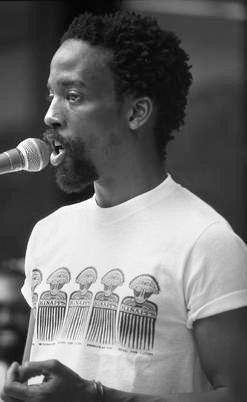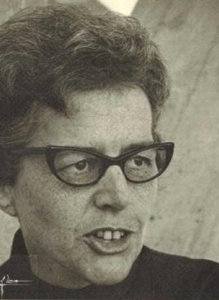
Nicholas Vachel Lindsay was an American poet. He is considered a founder of modern singing poetry, as he referred to it, in which verses are meant to be sung or chanted.

The Salem witch trials were a series of hearings and prosecutions of people accused of witchcraft in colonial Massachusetts between February 1692 and May 1693. More than 200 people were accused. Thirty people were found guilty, nineteen of whom were executed by hanging. One other man, Giles Corey, died under torture after refusing to enter a plea, and at least five people died in the disease-ridden jails.

In book publishing, an anthology is a collection of literary works chosen by the compiler; it may be a collection of plays, poems, short stories, songs, or related fiction/non-fiction excerpts by different authors. There are also thematic and genre-based anthologies.

"If—" is a poem by English poet Rudyard Kipling (1865–1936), written circa 1895 as a tribute to Leander Starr Jameson. It is a literary example of Victorian-era stoicism. The poem, first published in Rewards and Fairies (1910) following the story "Brother Square-Toes", is written in the form of paternal advice to the poet's son, John.

The Classic of Poetry, also Shijing or Shih-ching, translated variously as the Book of Songs, Book of Odes, or simply known as the Odes or Poetry, is the oldest existing collection of Chinese poetry, comprising 305 works dating from the 11th to 7th centuries BC. It is one of the "Five Classics" traditionally said to have been compiled by Confucius, and has been studied and memorized by scholars in China and neighboring countries over two millennia. It is also a rich source of chengyu that are still a part of learned discourse and even everyday language in modern Chinese. Since the Qing dynasty, its rhyme patterns have also been analysed in the study of Old Chinese phonology.
Wendy Cope is a contemporary English poet. She read history at St Hilda's College, Oxford. She now lives in Ely, Cambridgeshire, with her husband, the poet Lachlan Mackinnon.

The Red Book of Hergest, Oxford, Jesus College, MS 111, is a large vellum manuscript written shortly after 1382, which ranks as one of the most important medieval manuscripts written in the Welsh language. It preserves a collection of Welsh prose and poetry, notably the tales of the Mabinogion and Gogynfeirdd poetry. The manuscript derives its name from the colour of its leather binding and from its association with Hergest Court between the late 15th and early 17th century.
William "Bill" Wall is an Irish novelist, poet and short story writer.
John Frederick Snow, born Piqua, Ohio was an American radio writer, writer of ghost stories, and scholar, primarily of the works of L. Frank Baum. When Baum died in 1919, the twelve-year-old Snow offered to be the next Royal Historian of Oz, but was turned down by a staffer at Baum's publisher, Reilly & Lee. Snow eventually wrote two Oz books: The Magical Mimics in Oz (1946) and The Shaggy Man of Oz (1949), as well as Who's Who in Oz (1954), a guide to the Oz characters, all of which Reilly & Lee published.

Jimmy Santiago Baca is an American poet, memoirist, and screenwriter from New Mexico.

The Sangam literature, historically known as 'the poetry of the noble ones', connotes the early classical Tamil literature and is the earliest known literature of South India. The Tamil tradition and legends link it to three legendary literary gatherings around Madurai and Kapāṭapuram: the first lasted over 4,440 years, the second over 3,700 years, and the third over 1,850 years. Scholars consider this Tamil tradition-based chronology as ahistorical and mythical. Most scholars suggest the historical Sangam literature era, also called the Sangam period, spanned from c. 300 BCE to 300 CE, while others variously place this early classical Tamil literature period a bit later and more narrowly but all before 300 CE. According to Kamil Zvelebil, a Tamil literature and history scholar, the most acceptable range for the Sangam literature is 100 BCE to 250 CE, based on the linguistic, prosodic and quasi-historic allusions within the texts and the colophons.

Essex Hemphill was an openly gay American poet and activist. He is known for his contributions to the Washington, D.C. art scene in the 1980s, and for openly discussing the topics pertinent to the African-American gay community.

Madeline DeFrees was an American poet, teacher, and Roman Catholic nun.
Book of Songs may refer to:
Maurice Riordan is an Irish poet, translator, and editor.
Lisa Lubasch is an American poet.

Gregory Pardlo is an American poet, writer, and professor. His book Digest won the 2015 Pulitzer Prize for Poetry. His poems, reviews, and translations have appeared in The American Poetry Review, Callaloo, Poet Lore, Harvard Review, Ploughshares, and on National Public Radio. His work has been praised for its “language simultaneously urban and highbrow… snapshots of a life that is so specific it becomes universal.”

Oliver Baez Bendorf is an American poet.

Spectral Evidence is a 2024 poetry collection by Gregory Pardlo, published by Knopf. It is Pardlo's first major poetry collection since Pardlo won the 2015 Pulitzer Prize for Poetry for his 2014 book Digest. Spectral Evidence was longlisted for the 2024 National Book Award for Poetry.












